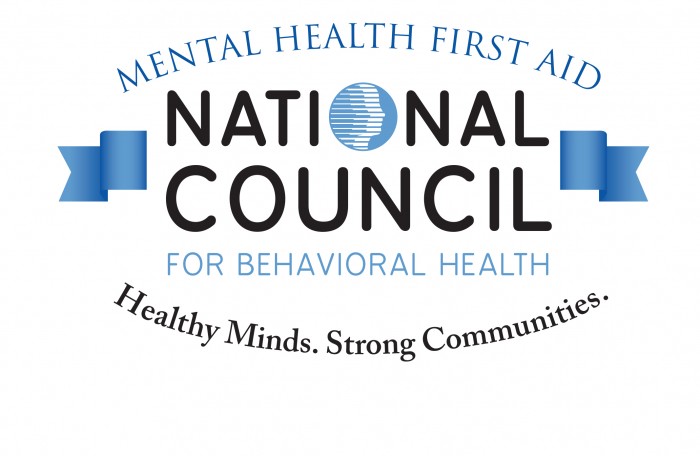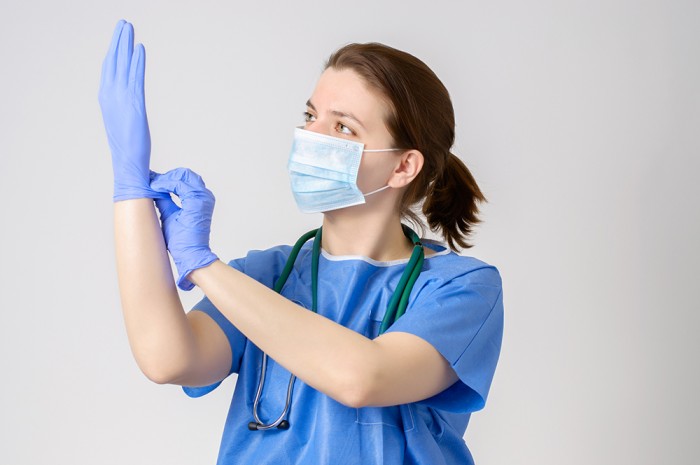CMS Issues New Recommendations to Re-Open Areas With Low Incidence of COVID-19
Today, the Centers for Medicare and Medicaid Services (CMS) issued new recommendations that are targeted specifically to communities that are in Phase 1 of the Guidelines for President Trump’s Opening Up America Again with low and stable incidence of COVID-19 cases. These guidelines recommend a gradual transition and encourage health care providers to coordinate with local and state public health officials, as well as reviewing the availability of personal protective equipment (PPE), workforce availability, facility readiness, and testing capability to factor into the decision making process to re-start or increase in-person care.
These recommendations update earlier guidance that was issued by CMS on limiting non-essential surgeries and medical procedures. Health care facilities and providers that are in areas still seeing higher numbers of COVID-19 cases are encouraged to continue following the recommendations made by CMS last month. These were issued to expand capacity to care for patients with COVID-19, to reduce the risks of transmission and exposure to patients, and to conserve adequate supplies (especially PPE) and manpower, during the public health emergency.
Wolf Administration Announces COVID-19 Testing Site for Northeast Pennsylvania

Harrisburg, PA- The Wolf Administration today announced a COVID-19 testing site at Mohegan Sun Arena at Casey Plaza in Wilkes-Barre, Luzerne County, to provide much-needed testing for symptomatic first responders, health care workers and residents 65 or older throughout Northeastern Pennsylvania.
“From 12:00 PM to 4:00 PM, Monday, the site will be open for 100 first responders and health care workers from Northeastern Pennsylvanian who are having COVID-19 symptoms to get tested,” Secretary of Health Dr. Rachel Levine said. “We are taking every precaution to safely provide this critical public health service and prevent the spread of COVID-19. People are required to stay in their cars to get tested and drive directly back onto the highway to return home.”
The drive-thru testing site will be held in the parking lot of the Mohegan Sun Pocono Arena and pre-registration is required. Beginning Tuesday, April 21, the site will be open from 10:00 AM to 4:00 PM daily to test up to 200 Northeastern Pa. residents over 65, first responders and health care workers each day. Registration is required one day in advance and can be found on the Department of Health’s website, health.pa.gov. No onsite registration is available.
Patients do not need a doctor’s prescription to be tested. Dr. Levine has signed a standing order for anyone who registers to be tested at the site.
For those who are registered, the site can be accessed by taking Exit 168 – Highland Park Boulevard from Interstate 81 (northbound or southbound) and following the signs and directions of local officials.
“After testing, you are required to return home and self-isolate,” Dr. Levine said. “If your symptoms worsen while you are waiting for your test results, talk to your doctor and if you experience a medical emergency please seek immediate care.”
The Department of Health State Laboratory will process the tests and provide residents with results in two to three business days. Patients will receive an email to log onto the registration site to access their test results.
“The planning and logistical efforts needed to pull together these testing sites in just a matter of days required a significant amount of coordination among state and county personnel,” said PEMA Director Randy Padfield. “It speaks to the professionalism and skills of the teams involved, and their dedication to the health and well-being of their communities.”
Symptoms of COVID-19 can include:
- Fever
- Cough
- Shortness of breath
- Diarrhea
Symptoms may appear in as few as two days or as long as 14 days after exposure. Reported illnesses have ranged from people with little to no symptoms to people being severely ill and dying.
As of 12:00 a.m., April 18, there were 31,069 positive cases of COVID-19 statewide in 67 counties and 836 deaths. Most of the patients hospitalized are 65 or older, and most of the deaths have occurred in patients 65 and older. There have been no pediatric deaths to date. More data is available here.
All non-life-sustaining businesses are ordered to be closed and schools are closed statewide indefinitely. Currently the entire state is under a stay-at-home order.
For the latest information for individuals, families, businesses and schools, visit “Responding to COVID-19” on pa.gov.
The Wolf Administration stresses the role Pennsylvanians play in helping to reduce the spread of COVID-19:
- Wash your hands with soap and water for at least 20 seconds or use hand sanitizer if soap and water are not available.
- Cover any coughs or sneezes with your elbow, not your hands.
- Clean surfaces frequently.
- Stay home to avoid spreading COVID-19, especially if you are unwell.
- If you must go out for a life-sustaining reason, please wear a mask.
Updated Coronavirus Links: Press Releases, State Lab Photos, Graphics
- Daily COVID-19 Report
- Press releases regarding coronavirus
- Latest information on the coronavirus
- Photos of the state’s lab in ExtonOpens In A New Window (for download and use)
- Coronavirus and preparedness graphics (located at the bottom of the page)
- Community preparedness and procedures materialsOpens In A New Window
- Map with the number of COVID-19 casesOpens In A New Window
All Pennsylvania residents are encouraged to sign up for AlertPA, a text notification system for health, weather, and other important alerts like COVID-19 updates from commonwealth agencies. Residents can sign up online at www.ready.pa.gov/BeInformed/Signup-For-Alerts.
MEDIA CONTACT: Nate Wardle, Health, 717-787-1783 or [email protected]
# # #
Resources and Recordings from FFCRA/PPP & Large Provider (500+ employees) Webinars
This week, we were fortunate enough to have two webinars for RCPA members with attorney Jeffrey Worley from Gibbel Kraybill & Hess LLP law firm in Lancaster, PA. Jason Asbell, also from GKH, joined us for one of the webinars.
- Recordings of the webinars are available on our website in the members only section.
- They have also made us aware of resources available on their website.
You can reach Jeff via email here.
Jeffrey J. Worley, Esq. | Gibbel Kraybill & Hess LLP
2933 Lititz Pike | P.O. Box 5349 | Lancaster, PA 17606
P: 717.291.1700 | F: 717.291.5547 |
Providers Urged to Fight COVID-19 Lawsuits by Documenting ‘Everything’
National Council Announces Financial Stability Webinar Series
Important COVID-19 Guidance for Behavioral Health Residential Facilities
Westmoreland County Blind Association Manufacturing Face Masks
Civil Rights Complaint Filed by Disability Rights PA Resulted in Progress on Medical Rationing Guidelines
In response to a civil rights complaint filed by Disability Rights Pennsylvania (DRP) and other advocacy groups, the U.S. Department of Health & Human Services’ Office for Civil Rights (OCR) announced on April 16, 2020, that Pennsylvania has made changes to its proposed guidelines on rationing of scarce medical care resources needed to treat COVID-19 patients that better protect people with disabilities from discrimination. Guidelines can be found here.
DOH removed criteria that automatically deprioritized persons needing critical care on the basis of particular disabilities and has included language to ensure that no one will be denied care based on stereotypes, assessments of quality of life, or judgments about a person’s “worth” based on disabilities. Importantly, OCR cautioned that “[t]his result does not, however, preclude future OCR enforcement in cases of potential discriminatory implementation of Pennsylvania’s policies by any covered health care provider.”
The Guidelines include the following protections for people with disabilities:
- No categorical exclusions. No person will be disqualified from receiving critical care solely on the basis of their disability. Health care providers cannot use a list of disabilities to de-prioritize those patients for critical care if rationing is implemented. As the Guidelines explain, such exclusions “will make many feel like their lives are ‘not worth saving,’ leading to justified perceptions of discrimination.”
- A prohibition on reallocation of the personal ventilators that adults with disabilities ordinarily use and bring with them when they seek care.
- No reference to specific disabilities as a basis to reduce the likelihood that those individuals would receive critical care.
- No consideration of life expectancy in the longer term, including 10-year life expectancy after critical care treatment.
- No one can “be denied care based on stereotypes, assessments of quality of life or judgments about a person’s ‘worth’ based on the presence or absence of disabilities or other factors.”
- All rationing decisions must be based on individualized patient assessments by clinicians using the best available objective medical evidence. This means that rationing decisions cannot be based on discriminatory assumptions about a person’s disability or medical condition.
- “Triage officers” – the health care professionals who will be responsible to make any rationing decisions – should receive training on implicit bias and cultural competency.
- Patients and their family members or caregivers who have concerns about rationing decisions should be notified of their right to express their concerns or file a complaint with the hospital. Unresolved or unsatisfactorily resolved complaints can be brought to the Pennsylvania Department of Health.
While the above changes go a long way in ensuring that people with disabilities do not suffer from discrimination, DRP remains concerned about a number of the Guidelines’ principles:
First, in rationing care, the Guidelines allow health care providers to consider predictions about how long a person will live in the short term, including up to five years after treatment, due to a disability or medical condition unrelated to COVID-19. This rule could unfairly limit access to health care resources for people with disabilities. To avoid discrimination, health care providers should only consider a person’s immediate term survivability, that is, the likelihood of surviving COVID-19 if provided treatment.
Second, the Guidelines do not explicitly instruct health care providers that they are required under the law to make reasonable modifications to accommodate people with disabilities, including by:
- Making modifications to the assessment tools used under the Guidelines if a person cannot be accurately and fairly assessed due to a disability.
- Making modifications for people whose disabilities might require a longer period of treatment – for example, on a ventilator – in order to ensure an equal opportunity to benefit from the treatment.
- Providing effective communication to people with sensory disabilities and making modifications to restrictive visitor policies to allow individuals with disabilities who need family members or staff to accompany them in the hospital to ensure that they are properly assessed and can participate in their treatment.
To continue to advocate for the rights of people with disabilities on this issue, DRP is opening a Health Care Rationing Hotline during the pandemic. Individuals with disabilities or family members or caregivers of individuals with disabilities who experience discrimination in health care rationing, who are denied effective communication at the hospital, or who are prohibited from bringing a needed family member or staff with them in the hospital should contact DRP at 1.800.692.7334 ext 402.
DRP has also created a fact sheet to assist people with disabilities with questions or concerns about medical rationing. It can be found here.















